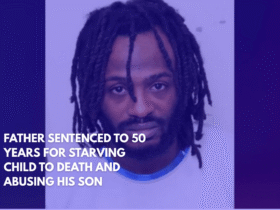A federal judge has ruled against the Trump administration’s use of a rarely-invoked wartime law to deport Venezuelan migrants, saying those accused of being gang members must first get a fair hearing in court.
U.S. District Court Judge James Boasberg said that migrants suspected of being connected to the Venezuelan gang Tren de Aragua must not be deported without a proper court review. His decision upholds a restraining order that blocks the government from using the Alien Enemies Act for deportations in this case.
What Is the Alien Enemies Act?
The Alien Enemies Act is a law from the 18th century usually used during wartime to detain or deport foreign nationals from enemy countries. It is very rarely used and usually only applies during official wars. Judge Boasberg criticized Trump’s “unprecedented use of the Act” outside of a traditional war context.
The Trump administration had tried to use this law to remove Venezuelan migrants simply by labeling them as members of the Tren de Aragua gang — without court hearings.
Fair Hearings Must Be Given First
Judge Boasberg said that deporting these individuals without a hearing is not acceptable. If migrants say they are not part of a gang, they deserve a chance to prove it in court before being sent away.
“Before they may be deported, they are entitled to individualized hearings to determine whether the Act applies to them at all,” Boasberg wrote. “They may not be deported until a court has decided the merits of their challenge.”
Other Deportation Methods Still Allowed
Judge Boasberg clarified that his order does not stop the Trump administration from deporting Venezuelans through standard immigration laws. Those involved in gangs like Tren de Aragua are already deportable under the Immigration and Nationality Act because such groups are considered foreign terrorist organizations.
Concerns Over Secret Deportations to El Salvador
This ruling is part of a bigger case where Judge Boasberg is also investigating whether the Trump administration disobeyed a previous court order. That earlier order told the government to stop flying migrants to a prison in El Salvador.
There are serious human rights concerns because the Salvadoran prison has been accused of torturing inmates. The judge noted that the roughly 260 Venezuelan migrants sent there were not told where they were being taken and didn’t get a chance to raise claims under international laws that protect against torture.
Boasberg said, “Without such information, even if they had been given an opportunity to raise a torture claim, they would not have been able to meaningfully do so.”
Judge Demands Answers from the Government
Judge Boasberg also criticized the Trump administration for refusing to provide information about when the deportation flights happened and who approved them.
“The government’s not being terribly cooperative at this point,” the judge said. “But I will get to the bottom of whether they violated my order, who ordered this, and what the consequences will be.”














Leave a Reply